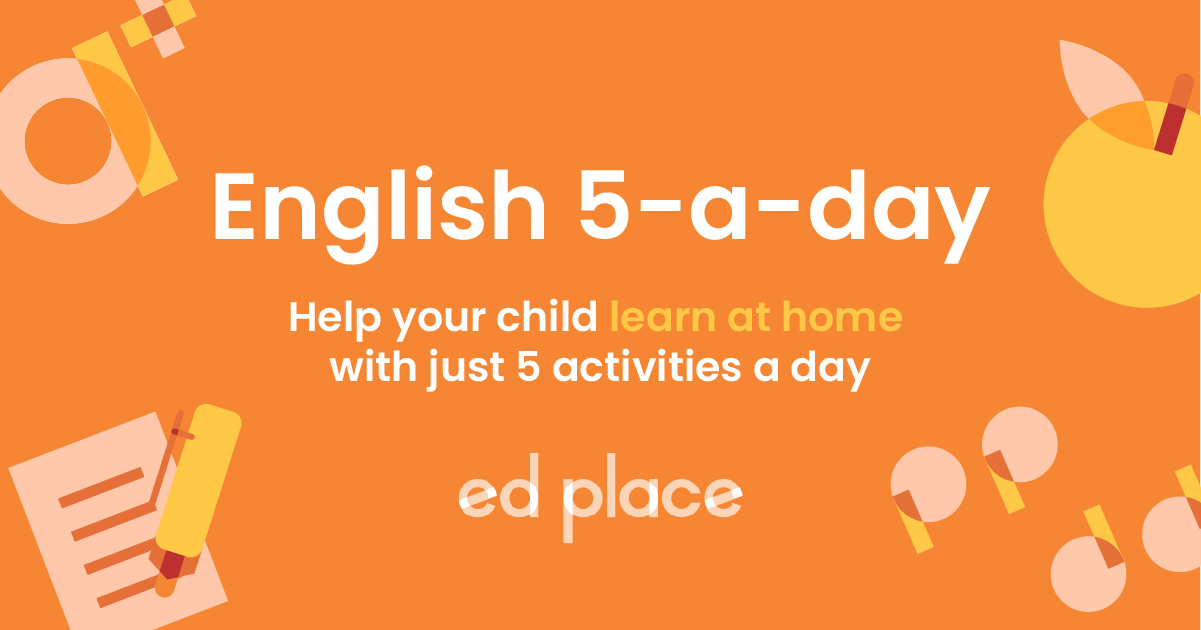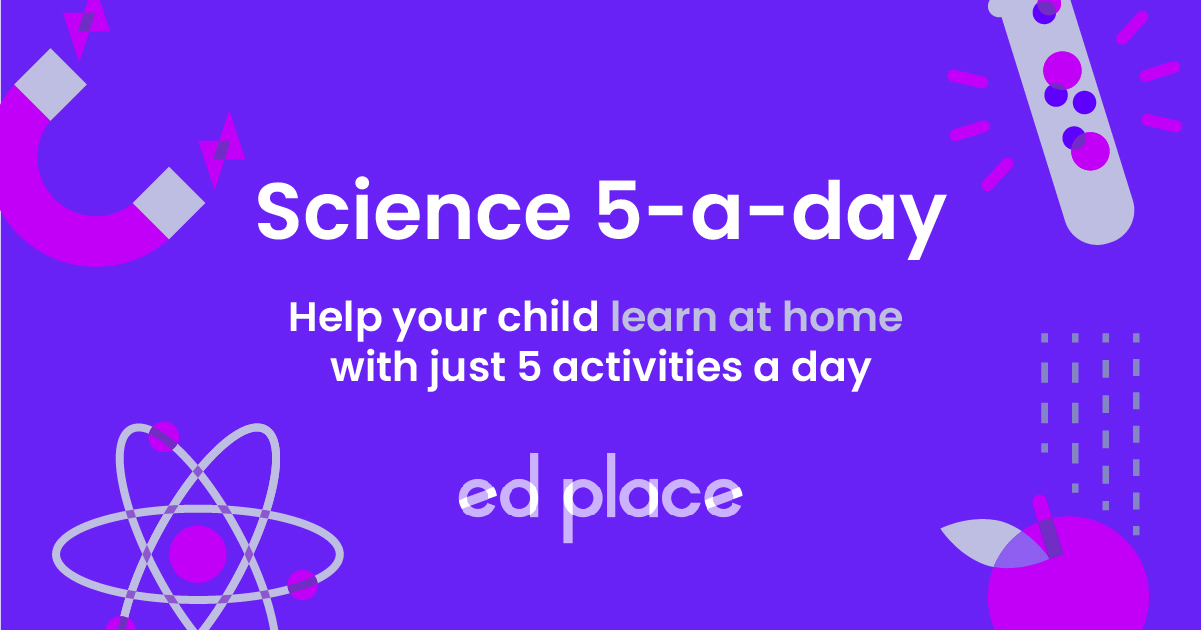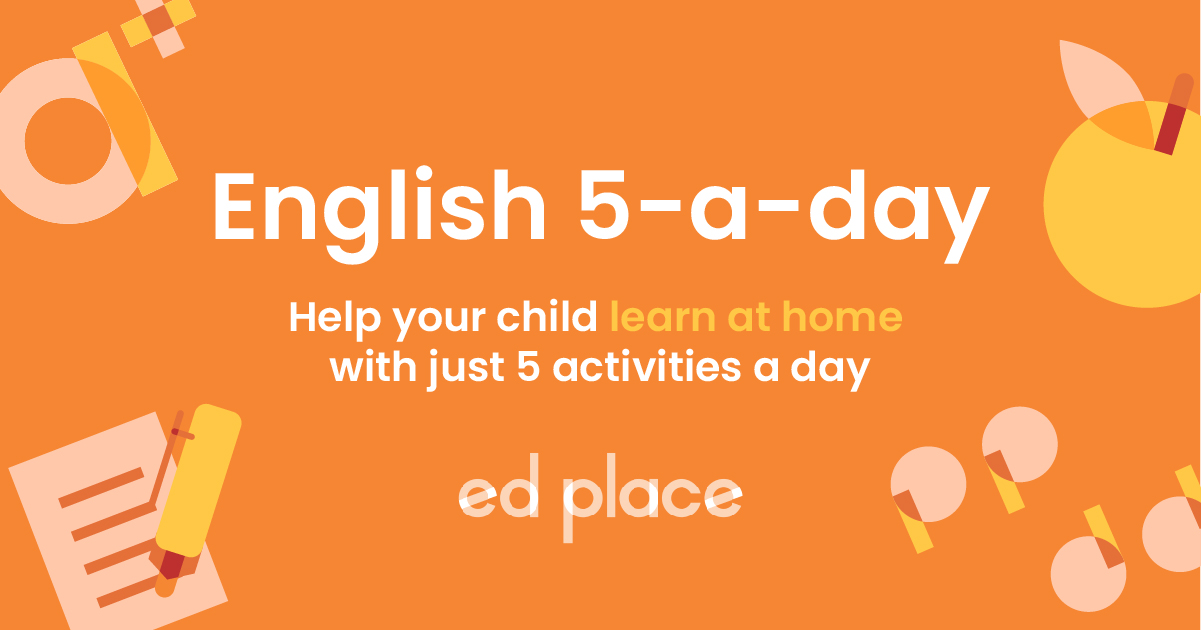
EdPlace's Year 8 Home Learning English Literature Lesson: Develop Formal Writing
Looking for short lessons to keep your child engaged and learning? Our experienced team of teachers have created English, maths and science lessons for the home, so your child can learn no matter where they are. And, as all activities are self-marked, you really can encourage your child to be an independent learner.
Get them started on the lesson below and then jump into our teacher-created activities to practice what they've learnt. We've recommended five to ensure they feel secure in their knowledge - 5-a-day helps keeps the learning loss at bay (or so we think!).
Are they keen to start practising straight away? Head to the bottom of the page to find the activities.
Now...onto the lesson!
Why Does Your Child Need to Develop Their Formal Writing Style?
‘Writing’ is all around us. From the back of a cereal box, to a Twitter post or job application form. In each context, writing is presented in a style which suits its purpose. Eventually, your child will have to write about themselves whether that is in the form of an essay, university application or CV!
We can help our children become confident writers when we teach them how to adapt the words they use to fit the context they're using them in. On one level, this will come pretty naturally. Most of us instinctively change our behaviour to fit our circumstances; a boisterous child who becomes shy when meeting new people is a simple example of how we morph to our surroundings. Similarly, we also need to develop the skill of being conscious in our writing.
By Year 8, students should be adapting their language and style, recognising the conventions of different writing forms. As they write for a range of purposes and audiences, they should be starting to switch between informal and formal vocabulary and syntax, using language that is appropriate and effective.
This step-by-step approach will explore the changes we make in our language when moving from spoken to written Standard English, and how we change our writing according to our audience and purpose. We can make our writing more formal by using different conventions, vocabulary and sentence styles to alter the tone and register.
We’re confident that by the end of this guide your child will be able to:
1) Identify different varieties of English from spoken colloquial English to Standard English, informal and formal writing
2) Understand how the choice of language is connected to its purpose
3) Explain their vocabulary choices and write with greater awareness
Step 1: Differences Between Spoken and Written English
The first language we learn is the speech of our care-givers. We also learn the version of our language used in the area we live- the dialect, speaking with the accent of our region and social group. As we need to communicate with English speakers who use varying accents and dialects, we learn an additional form of the language: Standard English. Becoming aware of those differences is a first step to recognising that there are different forms of English and that we need to use the most appropriate for the situation.
One common error in writing comes from mishearing speech, using ‘of’ instead of ‘have’. Below are three correct sentences that are often misspelt.
I would have been on time if my alarm had worked.
I should have chosen the other colour.
I could have been famous.
Step 2: Choosing Between Formal and Informal English
Your child will intuitively notice the inappropriate use of language. To demonstrate this to your child, why not try acting out the following scenarios together? You can then get them to think about how their language changes in each scenario:
a) meeting the Queen
b) meeting their friend in the playground
c) meeting their teacher on the first day back to school.
Your child should then be able to see how identifying the purpose and audience changes our language and writing. Sometimes it's clear how we must pitch our writing, but judgement may be needed in more sensitive situations. Developing that flexibility is a positive skill!
The purpose is the reason for writing e.g. to argue, persuade, explain, inform or advise. Purpose sets the tone and level of formality, also known as the register of writing. Each of these areas has distinctive styles which identify their purpose.
Our audience tells us about the relationship between the writer and the reader. It also guides us on how to pitch the language. Will it be personal and chatty such as between friends in a personal letter, or is the recipient unknown? If we're writing for young children, we can simplify our word choices and sentence structures. For teens, we may use a relaxed form and everyday slang. For mature readers, and those in positions of authority or responsibility, we're careful to use language which conveys respect.
Step 3: Further Areas to Develop Formal Writing
Contractions
In spoken English, even in Standard English, we tend to compress our sentences for speed and conciseness. However, in writing, we need to use clearer sentences and keep shortened versions of words to informal writing. Simply changing from the “I’m” to the “I am” form starts the shift to a more formal style.
Word-choice
In written English, having a repertoire of formal vocabulary is a fast-track way to impress and upgrade that writing. Replacing a simple ‘but’ with a more sophisticated ‘however’, or ‘also’ with ‘moreover’, helps to set the appropriate tone. Thankfully, there’s no need to swallow a thesaurus! Too many flashy words can be distracting; the skill lies in achieving a balance.
Conventions of form
Learning how to set out a letter or email correctly makes an immediate impact. Matching the appropriate salutation to the complimentary closing (Dear Sir/ Madam = Yours faithfully, or Dear Mr / Mrs/ Ms ‘Name’ = Yours sincerely) sends a simple but powerful message that you can use the convention effectively.
Step 4: Put Your Formal Writing to the Test...
Before we practise our EdPlace writing activities let's attempt some simple practice questions:
Part 1)
Complete the sentences below:
I should _______ won the prize!
I could _______ caught the bus.
I would ________ called you but I forgot my phone.
Part 2)
Decide if formal or informal language is appropriate in each of the following contexts:
1) An email to a school friend
2) A note to a neighbour inviting them to a barbecue
3) A note to a neighbour complaining about their noise
4) A letter to the council informing them of some potholes in the road
5) An advice leaflet about going to university
Extension: discuss where you might put each of these examples on a scale of 1 – 10; 1 being very informal and 10 being very formal. Your child could even add examples if you felt they needed to be stretched!
Part 3)
Make the following sentences more formal by rewriting the contradictions in their complete forms:
1) I’m writing to see if you’ll send me a refund as it’s broken.
2) I’ll get that letter sent ASAP.
3) I’d like this job as it’ll give me experience.
4) He’s been working since 5 am.
5) They’ve written to me again.
Part 4)
Replace these everyday words and phrases with more formal choices:
1) Ask
2) A lot of
3) Say sorry
4) Talk about
5) Also
6) Give
Step 5: EdPlace Activities
The following activities will build knowledge of informal and formal writing, further ensuring your child has a headstart at the topic.
All activities are created by teachers and automatically marked. Plus, with an EdPlace subscription, we can automatically progress your child at a level that's right for them. Sending you progress reports along the way so you can track and measure progress, together - brilliant!
Activity 1 - Writing in Formal Language: A Letter
Activity 2 - Writing in Formal Language: The Caravan
Activity 3 - Writing to Advise: Information for Younger Students
Activity 4 - Writing to Inform: Computer Game
Activity 5 - Writing to Persuade: School Uniform
Answers:
Part 1)
Could have / would have / should have
Part 2)
1) An email to a school friend = informal, using personal language.
2) A note to a neighbour inviting them to a barbecue = informal, level depends on how well they are known to the writer.
3) A note to a neighbour complaining about their noise = more sensitive, this one shows the need to use careful judgement! A first complaint could be informal, but if it's an ongoing problem the formality is likely to increase.
4) A letter to the council informing them of a pothole in the road = formal; the letter is to an unknown official about an impersonal matter.
5) An advice leaflet about going to university = informal, it should be friendly.
Part 3)
1) I am writing to see if you will send me a refund as it is broken.
2) I will get that letter sent as soon as possible. (Even better: I will send that letter as soon as possible.)
3) I would like this job as it will give me experience.
4) He has been working since 5 am.
5) They have written to me again.
Part 4)
1) Ask = enquire, request
2) A lot of = many, several, a number of
3) Say sorry = apologise
4) Talk about = discuss, consider
5) Also = moreover, furthermore, in addition
6) Give = provide, offer, present









